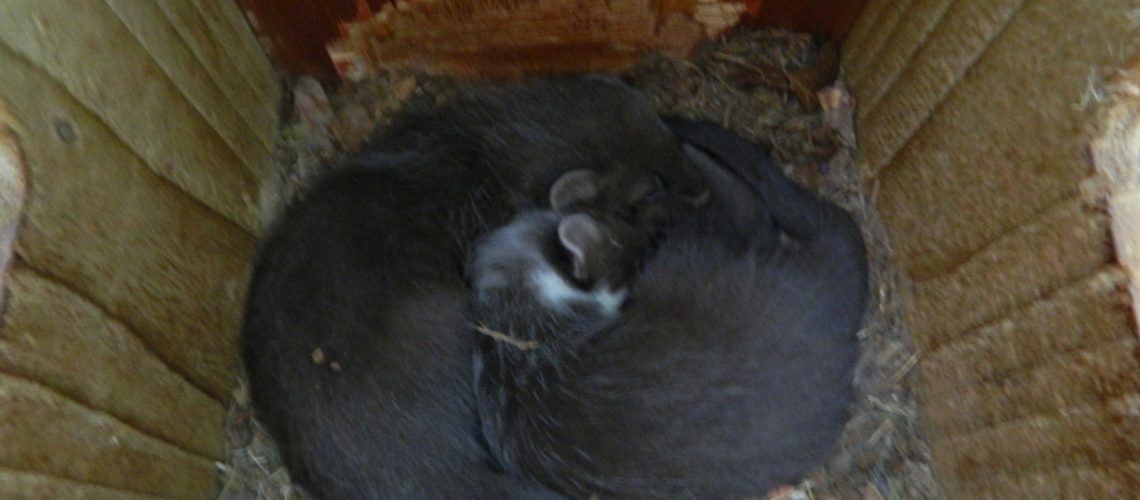
The pine marten carries the title of Britain’s second rarest carnivore after the wildcat making these births a very significant moment in the conservation of this native mammal.
At least three of the ten female pine martens brought to Wales from Scotland last autumn by The Vincent Wildlife Trust have given birth. Staff from the Trust’s ‘Pine Marten Recovery Project’ placed remote cameras at a number of sites where they believed female martens were preparing to have young. Further investigation has confirmed a total of at least five kits.
‘I am absolutely delighted. We have been waiting with bated breath for months to see if breeding would be successful,’ said Natalie Buttriss the Trust’s CEO.
The Pine Marten Recovery Project aims to restore a viable pine marten population to Wales and England. The project’s major partners are the People’s Trust for Endangered Species (PTES), Chester Zoo and Woodland Trust, with support from Wildlife Vets International and Exeter University. ‘PTES is delighted that kits have been born to the translocated pine martens. This is an important step in ensuring the success of this project,’ said Nida Al-Fulaij, Grants Manager with PTES.
‘This is such amazing news, and makes all the hard work by the VWT team and partners worthwhile,’ said Sarah Bird, Biodiversity Officer with Chester Zoo.
Mike Townsend of the Woodland Trust added: ‘Pine martens are not just an iconic woodland species, but also a key missing element in the woodland ecosystem. This recovery project demonstrates the importance of ensuring connectivity of good wildlife habitats across wide areas, so this beautiful and rare creature can thrive and hopefully spread more widely across the country.’
In the autumn of 2015, twenty pine martens were taken from Forestry Commission Scotland land under licence from Scottish Natural Heritage and relocated to Wales where they were on the verge of extinction. The animals were released in woodland owned by Natural Resources Wales. This is a pilot project and the animals have been radio tracked daily by staff and local volunteers to monitor their movements and behaviour patterns. When some of the females’ behaviour began to change it was a sign that a birth might be imminent.
A further twenty pine martens will be translocated from Scotland in the autumn and this should result in a self-sustaining population that over time will spread to other forests of Wales and across the border into England. Without this helping hand, it is likely that this native mammal would simply disappear from the Welsh landscape.
‘I am so happy to hear this news – I dream of the day when I will walk the woodlands of mid Wales and see a pine marten in the wild,’ said Iolo Williams, naturalist and TV presenter.
Download the Welsh translation